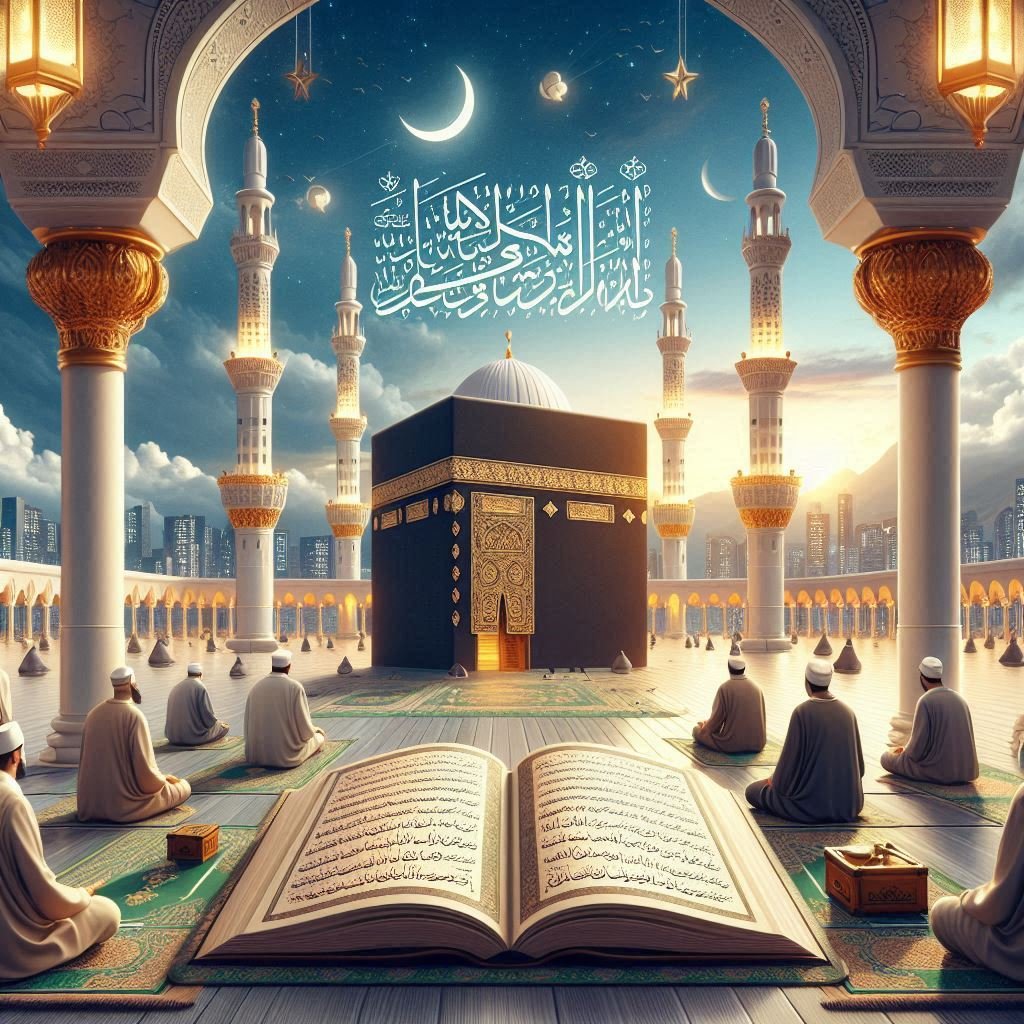The Five Pillars of Islam: A Comprehensive Guide
The Five Pillars of Islam form the backbone of a Muslim’s faith and practices, serving as essential acts of worship that shape every aspect of life. From daily prayers to the annual pilgrimage, these pillars guide a Muslim’s relationship with Allah, the community, and themselves. This guide will explore what these pillars represent, why they are important, and how they bring meaning to millions worldwide. Whether you’re familiar with Islam or just beginning your journey of understanding, this comprehensive guide will break down the core principles in an easy-to-digest format.
Introduction: What Are the Five Pillars of Islam?
The Five Pillars of Islam are the fundamental practices every Muslim must follow. They form the structure upon which a Muslim’s faith is built, guiding everything from personal devotion to community interaction. These pillars are:
- Shahada: The declaration of faith.
- Salat: The five daily prayers.
- Zakat: Almsgiving or charity.
- Sawm: Fasting during the month of Ramadan.
- Hajj: The pilgrimage to Mecca.
These aren’t just acts of worship but a roadmap for living a life of integrity, compassion, and spirituality.
The Spiritual Significance of the Five Pillars
Each pillar serves a distinct spiritual purpose that helps Muslims strengthen their connection with Allah. Together, they represent a holistic approach to life that emphasizes faith, discipline, generosity, and devotion. The beauty of these pillars is that they benefit the individual spiritually and promote social harmony and unity.
1. Shahada: Declaration of Faith
Understanding the Shahada
The Shahada is the cornerstone of Islam. It is the simple yet profound declaration: “There is no god but Allah, and Muhammad is His Messenger.” Reciting this makes a person a Muslim. It’s more than words; it’s a commitment to live by Allah’s teachings and follow the example the Prophet Muhammad (PBUH) set.
Why Shahada Is Central to Islam
With the Shahada, the other pillars would have meaning. The affirmation sets the foundation for every other aspect of faith. In essence, it’s a personal pledge to live a life of submission to Allah, which makes it the very heart of Islamic belief.
Living the Shahada Daily
Shahada isn’t just something Muslims say once and forget about. It’s a daily reminder to realign oneself with one’s faith. Whether during prayer, at work, or with family, the principles of Shahada guide a Muslim’s decisions and actions throughout life.
2. Salat: The Daily Ritual Prayers
What is Salat?
Salat refers to the five daily prayers that Muslims are required to perform. It’s a structured form of worship that includes specific movements, recitations, and moments of reflection. The prayers are done facing Mecca and are spread throughout the day at different times: dawn (Fajr), midday (Dhuhr), afternoon (Asr), sunset (Maghrib), and evening (Isha).
The Five Daily Prayers and Their Timing
Each of the five prayers serves as a spiritual checkpoint, ensuring Muslims stay connected to their faith throughout the day. These prayer times are:
- Fajr (before sunrise)
- Dhuhr (after midday)
- Asr (mid-afternoon)
- Maghrib (just after sunset)
- Isha (night)
Importance of Salat in a Muslim’s Life
Salat is more than just a religious obligation; it’s a way to pause the chaos of daily life and focus solely on one’s relationship with Allah. It teaches discipline, humility, and mindfulness. The daily prayers also foster a sense of community, as Muslims worldwide perform these prayers at roughly the same times each day.
3. Zakat: The Duty of Almsgiving
What is Zakat?
Zakat, the third pillar, is all about charity and social responsibility. Muslims must give a portion of their wealth—typically 2.5% of their savings—to those in need. It’s not simply about donating money; Zakat is a way to purify one’s wealth and redistribute it to benefit society’s most vulnerable members.
Who is Obligated to Give Zakat?
Any Muslim whose wealth exceeds a certain threshold (called the nisab) must give Zakat. This ensures that the wealthier members of society contribute to the welfare of those less fortunate, helping to reduce poverty and inequality.
Zakat and Social Responsibility
Zakat fosters a sense of compassion and responsibility within the Muslim community. It reminds people that wealth is a blessing from Allah and should be used to support others. In many ways, Zakat functions as a form of social justice, ensuring that the community’s basic needs are met.
4. Sawm: Fasting in the Month of Ramadan
The Meaning of Sawm
Sawm refers to fasting during the holy month of Ramadan, the ninth month of the Islamic calendar. Muslims fast from dawn until sunset, abstaining from food, drink, and other physical needs. But Sawm goes beyond physical fasting; it’s a time for spiritual reflection, self-restraint, and heightened devotion.
Why Muslims Fast During Ramadan
Fasting during Ramadan is one of Islam’s most significant acts of worship. It commemorates the month when the Quran was first revealed to the Prophet Muhammad. By fasting, Muslims cultivate patience, humility, and empathy for those who are less fortunate.
The Physical and Spiritual Benefits of Fasting
While fasting has clear physical benefits, such as detoxifying the body, the spiritual rewards are even greater. It’s a time to purify the soul, seek forgiveness, and grow closer to Allah. Many Muslims describe Ramadan as a period of profound personal transformation.
5. Hajj: The Pilgrimage to Mecca
What is Hajj?
Hajj, the final pillar of Islam, is the pilgrimage to Mecca that every Muslim must undertake at least once in their lifetime, provided they are physically and financially able. Hajj occurs in the Islamic month of Dhu al-Hijjah and involves a series of deeply symbolic and spiritual cleansing rituals.
The Rituals of Hajj
The pilgrimage lasts several days and includes various rituals such as circling the Kaaba, standing on the plains of Arafat, and throwing pebbles at symbolic pillars in Mina. Each act during Hajj physically expresses spiritual devotion, humility, and unity with the global Muslim community.
The Transformative Experience of Hajj
Hajj is a once-in-a-lifetime experience for most Muslims, and many describe it as life-changing. The physical challenges and the spiritual intensity often leave pilgrims with a deep sense of renewal and purpose. It’s a reminder of the ultimate submission to Allah and the equality of all Muslims, regardless of race, nationality, or social status.
How the Five Pillars Unite the Muslim Community
The Five Pillars not only help individuals strengthen their faith, but they also serve to unify the Muslim community. Whether through the collective prayers of Salat, the shared experience of fasting during Ramadan, or the pilgrimage to Mecca, these practices remind Muslims that they are part of a global family. Despite cultural, language, or geography differences, the Five Pillars connect Muslims worldwide through their shared commitment to Allah.
Conclusion: Living by the Five Pillars
The Five Pillars of Islam are more than just religious obligations; they are a blueprint for fulfilling and meaningful lives. By adhering to these practices, Muslims develop a closer relationship with Allah, foster compassion for others, and create a sense of unity within the Muslim community. Each pillar offers its spiritual benefits, but they provide a comprehensive guide for achieving personal growth and spiritual peace.
FAQs About the Five Pillars of Islam
Can the pillars be performed in a different order?
No, the order of the pillars is set in Islamic teachings. However, some pillars like Hajj are only required when conditions are met.
What if someone is unable to perform Hajj or Sawm?
If someone is physically or financially unable to perform Hajj or fast, they are exempt. Islam places importance on intention and effort.
How are children taught the Five Pillars?
Children are gradually introduced to the pillars through family practice, religious education, and participation in community activities. Full adherence is encouraged after puberty.
Is Zakat only financial?
Zakat primarily refers to financial charity, but other forms of giving (like time or skills) are also encouraged under the broader concept of Sadaqah.
Why are prayers five times a day?
The five daily prayers create a consistent routine of reflection and spiritual connection, reminding Muslims of their relationship with Allah throughout the day.


